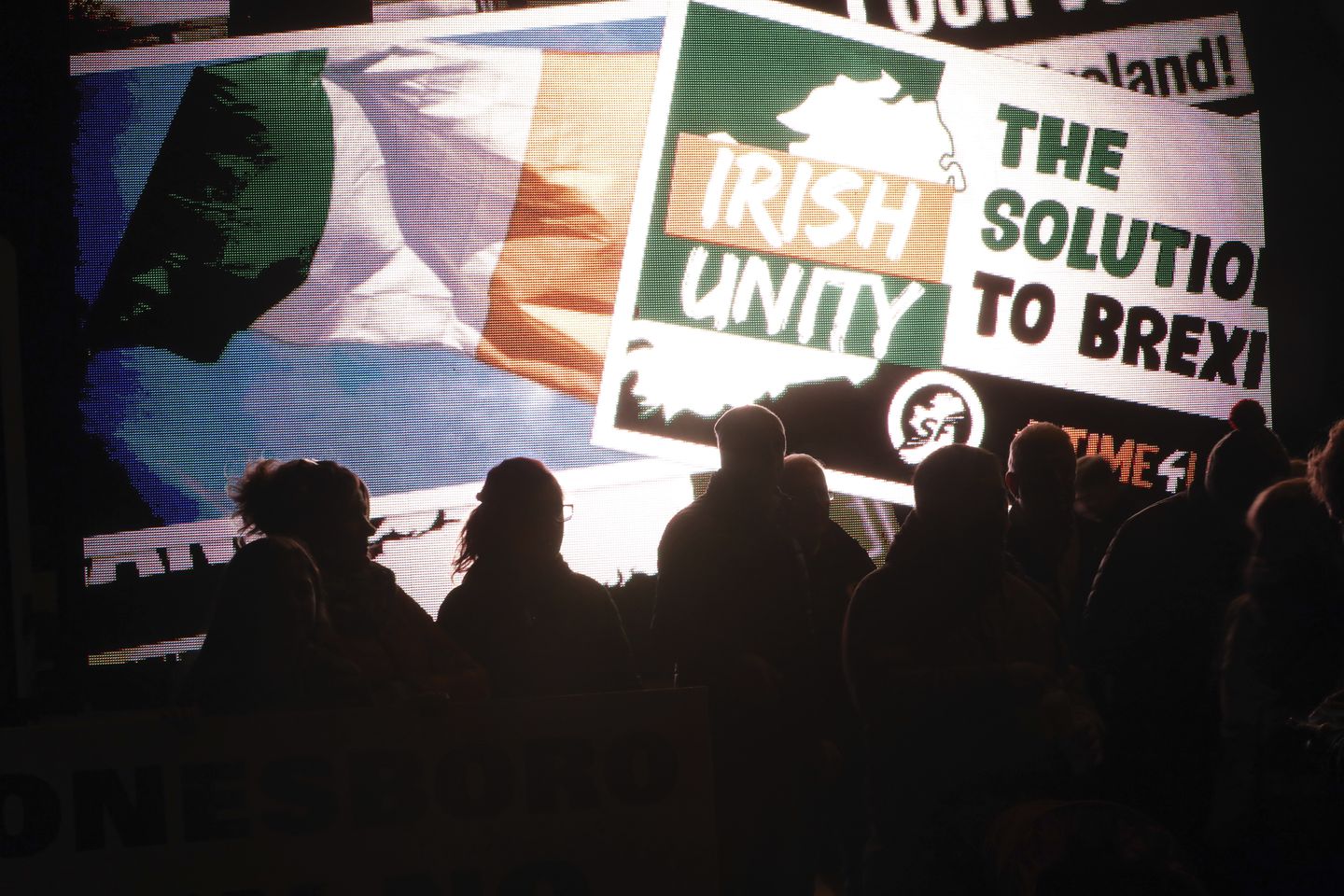
Sinn Fein evidenced in the February Irish elections that two-party systems can be successfully contested and distorted. Large parts of the Republic of Ireland’s electorate are now demanding something else other than the consensus politics of austerity offered by Fine Gael and Fianna Fail.
Last Thursday, Ireland’s TDs returned to a hung parliament in a state of deadlock over appointing a new Taoiseach. Despite Sinn Fein winning the popular vote, in terms of first preferences, the party has been unable to form a government. Coalition talks, formal and informal alike, are expected to continue for the coming weeks and months exacerbating the stalemate.
The prospects of a Sinn Fein-led administration has pushed the question of Irish unity into the forefront of politicians’ minds.
The Good Friday Agreement provides the peaceful political path towards a united Ireland “on the basis of consent, freely and concurrently given, north and south”, and prospects may have been increased in likelihood as a result of February’s election and the implications that Brexit will have for Northern Ireland and its relationship with the republic.
The impetus for possible Irish unity may be the strongest it has ever been since the Republic of Ireland gained independence from the United Kingdom a century ago.
The political consequences of Boris Johnson’s Withdrawal Agreement by effectively creating a “border down the Irish sea” may induce some voters in Northern Ireland to turn towards unification. Northern Ireland will continue to be part of the EU’s customs rules for its trade with the republic and continued regulatory alignment will allow the Irish border to remain open. If the UK government decides to diverge on trade, as it has repeatedly signalled it intends to do, this could provide an economic motivation for the North to want to unify with the South.
Furthermore, Northern Ireland’s demographics are changing. There are speculations that the Northern Ireland census of 2021 will reveal that Catholics have become the largest religious group in the North. Whilst religion still plays a very prominent role in the island’s politics, north and south of the border, this prominence is becoming less pronounced especially among younger generations, this will be a very symbolic moment for the island as a whole.
When the time arrives and the Secretary of State for Northern Ireland grants a border poll in Northern Ireland, and the republic responds with a change to its constitution through a referendum also, a plan needs to be already in place so voters know what unification, in the practical as well as symbolic terms, will mean for their everyday lives. On the economy, the south is likely going to have to impose an austerity programme on the six counties due to Northern Ireland’s deficit. On health services, questions arise over a possible merger of the South’s insurance-based healthcare with the North having free healthcare at the point of use. There are also other public service policy discrepancies such as the police and the armed forces that will need to be considered seriously if the island of Ireland decides to unify.
Whilst national identity is likely to be at the forefront of voters’ minds when they vote on unification, and rightly so, the politicians of Northern Ireland, the Republic of Ireland and Britain have a serious responsibility to inform voters what unification will mean in practical terms.
Written by Hugh Dollery



Average Rating